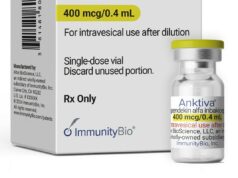Bristol-Myers Squibb considers itself well-prepared to launch its two CAR-T cell therapies following anticipated Food and Drug Administration approvals this year.
The New York-based drugmaker was one of the first to present at the J.P. Morgan Healthcare Conference in San Francisco, on Monday morning. Speaking in a breakout session following their presentation, the company’s leadership highlighted some of the lessons they had learned from other companies’ experiences in launching CAR-Ts.
“As we think about what would be some of the learnings, I think there are some that are internal and external, independent of companies,” said BMS president for hematology Nadim Ahmed, in response to a question from an audience member about the path laid by the first company to win Food and Drug Administration for a CAR-T therapy, Basel, Switzerland-based Novartis.
Having acquired Celgene last year for $74 billion, BMS is expected to be third to the CAR-T market, with lisocabtagene maraleucel (liso-cel) for diffuse large B-cell lymphoma and idecabtagene vicleucel (ide-cel) for multiple myeloma, the latter of which is being developed in partnership with Cambridge, Massachusetts-based bluebird bio. It has been reported that the products could be launched as early as the end of this year.
Novartis won approval for Kymriah in pediatric acute lymphoblastic leukemia in 2017, followed by Kite Pharma – now part of Gilead Sciences – getting a nod for Yescarta (axicabtagene ciloleucel) for DLBCL, and a label expansion for Kymriah in DLBCL in 2018.
A potential future competitor to ide-cel is JNJ-68284528, currently in Phase Ib/II development under a partnership between Johnson & Johnson’s Janssen subsidiary and Nanjing, China-based Legend Biotech. In J&J’s breakout session, executives noted that the company was working on manufacturing the CAR-T – which, like ide-cel, targets the cell-surface antigen BCMA – in the U.S.
A key consideration, Ahmed said, is around the reimbursement environment for CAR-Ts. Whereas Yescarta and Kymriah are given on an inpatient basis, there has been considerable buzz about liso-cel having a favorable enough safety profile to be given as an outpatient therapy. That, in turn, could enable the company to expand the footprint and number of physicians able to administer liso-cel, he said.
Another important aspect of CAR-T therapies is manufacturing and ensuring the shortest possible “vein-to-vein” time, meaning the period between apheresis – extraction of patients T cells – and infusion with the finished product. On that point also, executives expressed optimism.
“From a manufacturing perspective, we are obviously ready to supply launch,” CEO Giovanni Caforio said.
One reason manufacturing gets a lot of attention in relation to CAR-T therapies is because of some of the production problems that have occasionally dogged them, particularly in the case of Novartis. Reports of manufacturing problems date back to when Kymriah was still in clinical trials, and the company struggled to meet demand. More recently, Biopharma Dive reported in 2018 that some patients were being given out-of-spec Kymriah free of charge.
At a breakout session following his presentation at J.P. Morgan on Monday, Novartis CEO Vas Narasimhan said the company had made several changes to improve manufacturing.
Photo: Bill Ingalls, NASA via Getty Images








